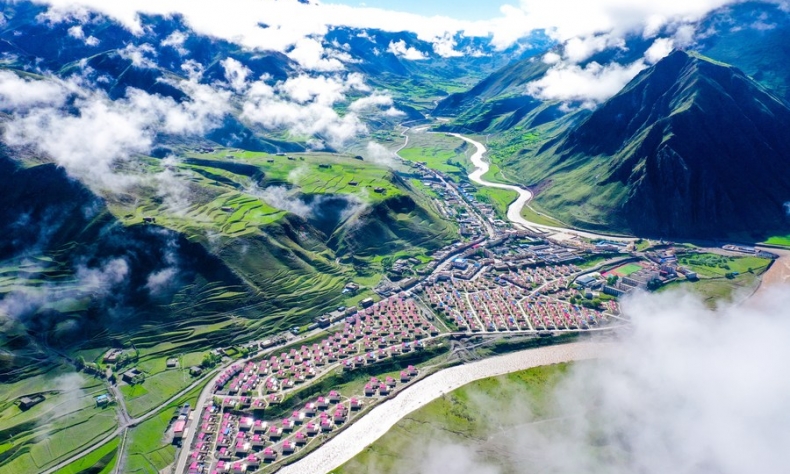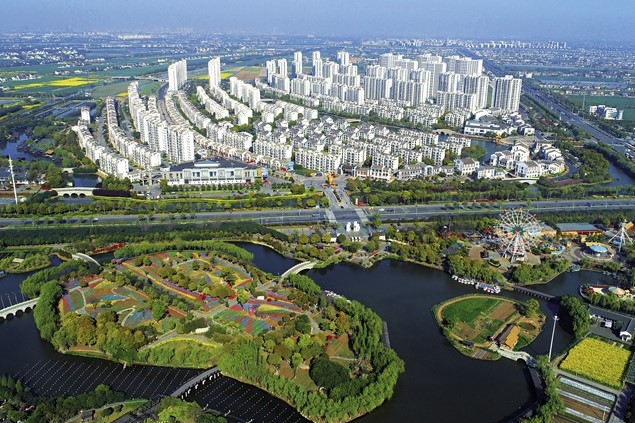The Secret of China’s Success in the Fight Against Poverty

This has improved the quality of life of the Chinese people and teaches other countries, especially in the developing world, that poverty is remediable.
Founded in 1921, the Communist Party of China (CPC) turns 100 this year, making 2021 a year of historic and symbolic celebrations for the Chinese. Alongside these celebrations of the CPC’s centenary, the big question that all of humanity should be asking is how the People’s Republic of China has eradicated absolute poverty on its soil, a goal set by the United Nations that once seemed to be a utopia, a wishful thinking for many countries, especially in Africa.
China is now teaching us that poverty is not destiny and has become a benchmark. China is always ready to share its experiences in this area in the conviction that we must build a community with a shared future for humanity.
China’s secret is multifaceted
First, open-mindedness. Chinese leaders, setting development as the ultimate goal and proceeding with bold reform and opening-up, have done a great job in educating and raising awareness among the population. As a result, the populace understand that no difficulty is too great to overcome as long as they remain committed and persevere. Thus, the Chinese people freed their minds from the idea that they should be content with their own plight and wait for help from the government and other forms of financial aid: they quickly got to work.
Through his book, titled Up and Out of Poverty, President Xi Jinping, who believes that one can only escape poverty after emancipating oneself from mind poverty, has enlightened the Chinese people and made them understand that they could free themselves from poverty. President Xi urged compatriots to see themselves as the key to solving shortages in funds and raw materials. This shift in responsibilities is the fundamental tenet that underpins prosperity. According to him, the Chinese people should not expect others to provide the answer to all their problems; instead, they should find it within themselves. This work in education and awareness-raising has allowed the Chinese to understand that poverty is never a destiny nor invincible. Overcoming poverty just takes courage, insight, a sense of responsibility and the right methods.
Second, there has been a clear political vision laid out by the CPC, which has placed poverty alleviation and rural recovery high on the agenda of the Chinese leadership. Indeed, the central authorities have put rhetoric into action, making the alleviation of rural poverty an important part of a broader effort to complete the building of a moderately prosperous society in all respects by the CPC’s centenary this year. In 2015, Xi Jinping demanded that all impoverished rural residents be lifted out of poverty by 2020, in line with the goal the CPC had set itself, namely to complete the building of a moderately prosperous society in all respects by 2021. This commitment by the CPC and its general secretary has translated into an extraordinary daily fight against poverty and a true revitalization of rural China on a historically unprecedented scale and duration. Never before have so many people benefited from such a campaign.

Lastly, it is about making the right investments that yield adequate results. To achieve this “human miracle” of eradicating absolute poverty in China, the authorities have made the sustained material and financial investments required for the continual development of the country’s poorest communities. From 2012 to 2020, the Chinese government, at the central, provincial, municipal and district levels, has allocated nearly 1.6 trillion yuan to the fight against poverty. In some regions, poor residents have moved from inhospitable and remote areas to newly built villages and cities. Millions of people have moved into new housing, while millions of homes have been renovated.
In other regions, government officials have gone door-to-door, village by village, identifying poor families to provide them with vocational training, grants to set up businesses, and access to markets and financing. Infrastructures such as roads, highways, high-speed railroads, hospitals and schools have been built. The government has offered banking facilities and tax incentives to the population. Poverty alleviation funds have been established.
In just a few years, living standards have changed radically in China. The net per capita income of registered rural residents has increased from 2,982 yuan in 2015 to 10,740 yuan in 2020. In order to ensure that the consolidation of poverty alleviation achievements is linked with rural revitalization, the government will maintain key assistance and support policies for a further five years in districts that were formerly impoverished, starting from the day they are officially lifted out of poverty.
National Administration for Rural Revitalization has been set up, replacing the State Council Leading Group Office for Poverty Alleviation and Development, which had been operating since 1993.
These monumental achievements in human history make China the first country in the world to achieve a UN sustainable development goal before 2030. This has improved the quality of life of the Chinese people and teaches other countries, especially in the developing world, that poverty is remediable.
Jerome Kabore is editor-in-chief of Tinganews.com from France.
 Facebook
Facebook
 Twitter
Twitter
 Linkedin
Linkedin
 Google +
Google +










